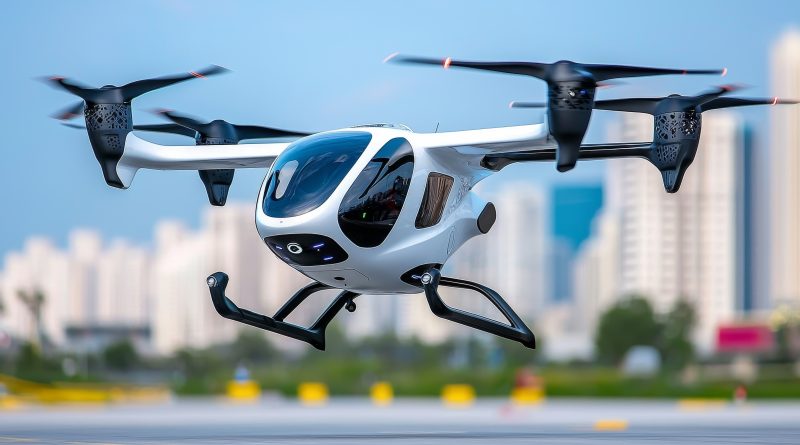How Joby’s Blade acquisition accelerates air taxi rollout
Subscribe to our free newsletter today to keep up to date with the latest transportation and logistics news.
Joby Aviation has taken a decisive step in the evolution of urban air mobility with its acquisition of Blade Air Mobility’s passenger ride-share business. Valued at up to $125 million, the deal provides Joby with direct access to 12 heliport terminals across major metropolitan regions and a loyal customer base that includes frequent fliers between JFK, Newark, and Manhattan. The transaction is expected to close by the end of 2025, subject to regulatory approval and customary closing conditions.
The payment structure includes a base value and an earnout component tied to performance and leadership retention. Up to $90 million will be settled in cash or Joby equity, with an additional $35 million contingent on post-closing milestones. While Blade’s passenger operations will fall under the Joby umbrella, its MediMobility division, focused on time-critical organ transport, is excluded from the deal and will become a separate public entity.
Rob Wiesenthal, Blade’s founder and CEO, will continue overseeing passenger operations within Joby while also becoming chairman of Strata Critical Medical, the new standalone company that inherits Blade’s healthcare logistics portfolio.
Blade’s network will accelerate Joby’s air taxi rollout
Blade’s passenger infrastructure represents a rare asset in the developing eVTOL space. The company transported more than 50,000 passengers in 2024, with routes designed around reducing urban traffic and offering time savings to high-frequency travelers. Its terminals are strategically positioned in dense, high-value regions where demand for fast, efficient mobility is expected to grow as electric air taxis become certified.
The acquisition allows Joby to bypass years of permitting and real estate negotiations by inheriting operational heliports and customer relationships. It also brings a team with experience in navigating aviation regulations, charter operations, and premium transportation services.
For Joby, integrating Blade’s network means being able to offer city-to-airport routes shortly after receiving FAA Type Certification for its aircraft, expected in 2026. These early deployments can act as commercial pilots and revenue-generating routes ahead of full-scale launch.
Blade pivots to healthcare logistics under Strata Critical Medical
While the passenger business generated attention, the spin-off of Blade’s MediMobility division is equally strategic. Now branded as Strata Critical Medical, the new company will handle organ transport, tissue logistics, and time-sensitive medical cargo for hospitals and transplant networks.
Strata will continue partnering with Joby for air-based medical missions, reinforcing the operational alignment between both companies. Wiesenthal’s leadership across the two entities ensures continuity during the transition.
Blade’s decision to focus on medical logistics reflects a shift toward business-to-business operations in a space with consistent demand and operational urgency. With future opportunities in drone transport and data-driven logistics, Strata is positioned to grow as a specialized player in healthcare transportation.
Joby edges closer to FAA certification and global market entry
The Blade acquisition aligns with Joby’s short-term commercial strategy. The company is targeting FAA certification by early 2026, with Type Inspection Authorization testing in progress. Joby’s aircraft, a five-seat electric vertical takeoff and landing vehicle, has completed thousands of hours in simulation and real-world testing.
By acquiring Blade’s infrastructure, Joby addresses a core requirement for commercialization: ground access. Urban air mobility demands more than vehicles—it requires terminals, passenger handling, and regulatory approval at the municipal level. Blade’s network, already certified for helicopter use, offers a path toward rapid operational rollout.
Joby is also preparing for launch markets in Dubai and New York, where regulators are exploring how to integrate eVTOL operations into existing air traffic frameworks. With Blade’s footprint in New York, Joby strengthens its presence in one of the most complex and visible mobility markets.
The stock market responded positively to the deal. Joby shares rose by more than 17 percent, while Blade’s shares climbed nearly 30 percent following the announcement. The response reflects investor recognition that Joby has acquired a functioning business with near-term revenue potential.
The acquisition marks a broader shift in how companies approach air mobility. As certification pathways become clearer, the value of infrastructure and integration experience rises. Joby’s model of combining proprietary aircraft with in-market terminals offers a tangible commercial roadmap.
Sources:
TechCrunch
